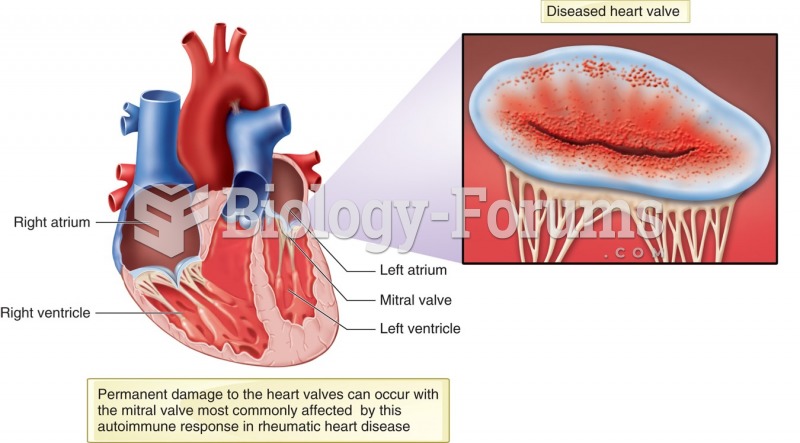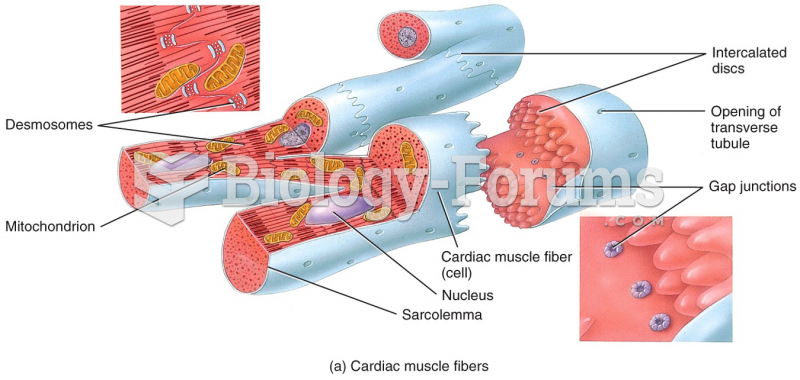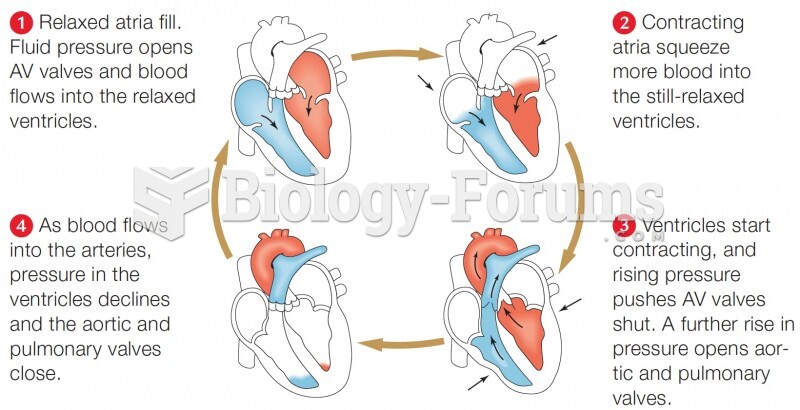|
|
|
About one in five American adults and teenagers have had a genital herpes infection—and most of them don't know it. People with genital herpes have at least twice the risk of becoming infected with HIV if exposed to it than those people who do not have genital herpes.
It is believed that the Incas used anesthesia. Evidence supports the theory that shamans chewed cocoa leaves and drilled holes into the heads of patients (letting evil spirits escape), spitting into the wounds they made. The mixture of cocaine, saliva, and resin numbed the site enough to allow hours of drilling.
The longest a person has survived after a heart transplant is 24 years.
For high blood pressure (hypertension), a new class of drug, called a vasopeptidase blocker (inhibitor), has been developed. It decreases blood pressure by simultaneously dilating the peripheral arteries and increasing the body's loss of salt.
The term bacteria was devised in the 19th century by German biologist Ferdinand Cohn. He based it on the Greek word "bakterion" meaning a small rod or staff. Cohn is considered to be the father of modern bacteriology.
 An intra-aortic balloon pump increases circulation to the coronary arteries and decreases the worklo
An intra-aortic balloon pump increases circulation to the coronary arteries and decreases the worklo
 Coronary artery bypass graft (CABG). The grafts are often obtained from the patient’s saphenous vein
Coronary artery bypass graft (CABG). The grafts are often obtained from the patient’s saphenous vein





